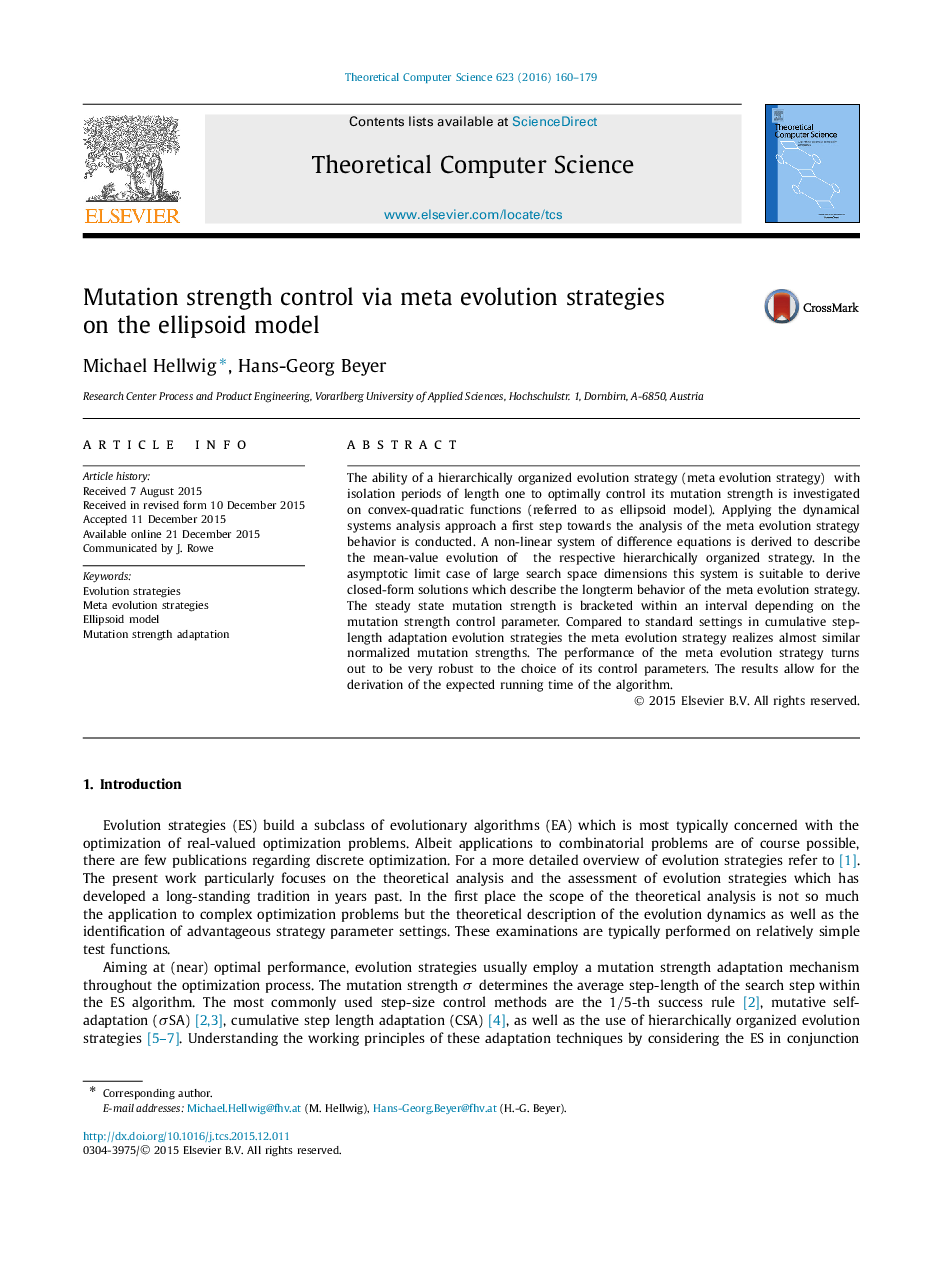| Article ID | Journal | Published Year | Pages | File Type |
|---|---|---|---|---|
| 433701 | Theoretical Computer Science | 2016 | 20 Pages |
The ability of a hierarchically organized evolution strategy (meta evolution strategy) with isolation periods of length one to optimally control its mutation strength is investigated on convex-quadratic functions (referred to as ellipsoid model). Applying the dynamical systems analysis approach a first step towards the analysis of the meta evolution strategy behavior is conducted. A non-linear system of difference equations is derived to describe the mean-value evolution of the respective hierarchically organized strategy. In the asymptotic limit case of large search space dimensions this system is suitable to derive closed-form solutions which describe the longterm behavior of the meta evolution strategy. The steady state mutation strength is bracketed within an interval depending on the mutation strength control parameter. Compared to standard settings in cumulative step-length adaptation evolution strategies the meta evolution strategy realizes almost similar normalized mutation strengths. The performance of the meta evolution strategy turns out to be very robust to the choice of its control parameters. The results allow for the derivation of the expected running time of the algorithm.
